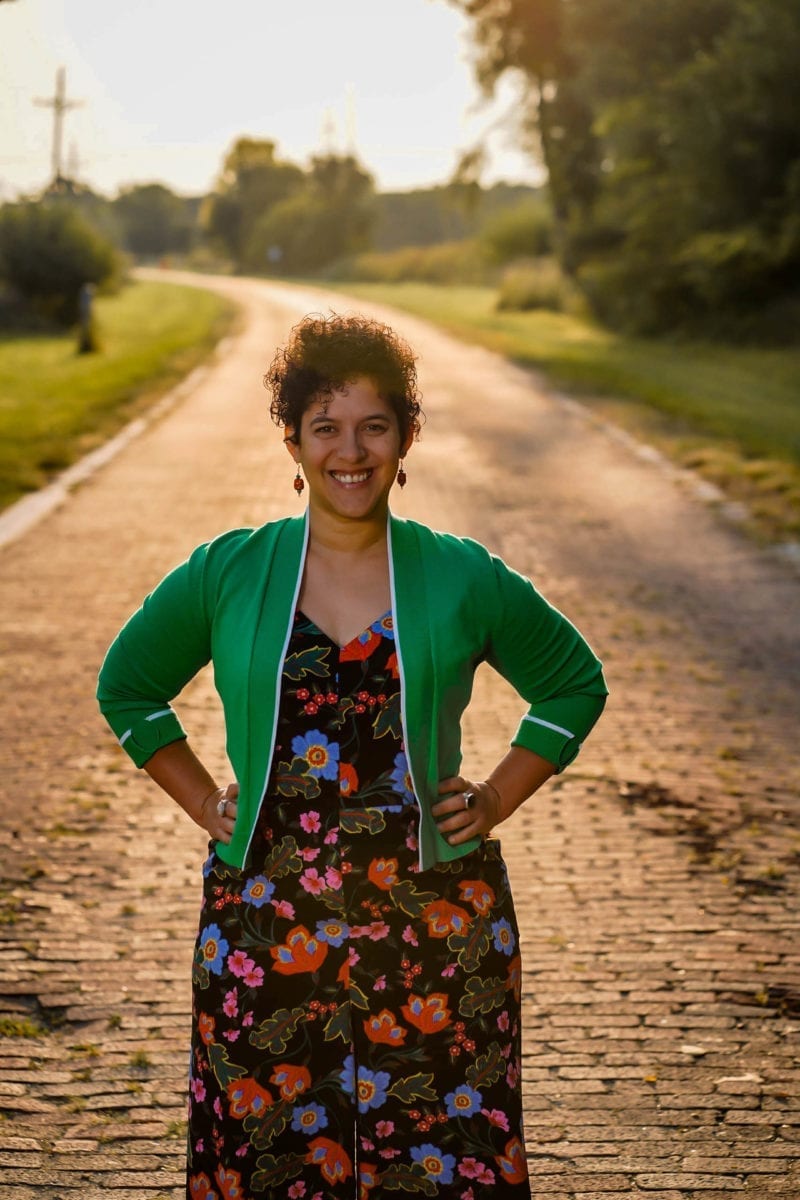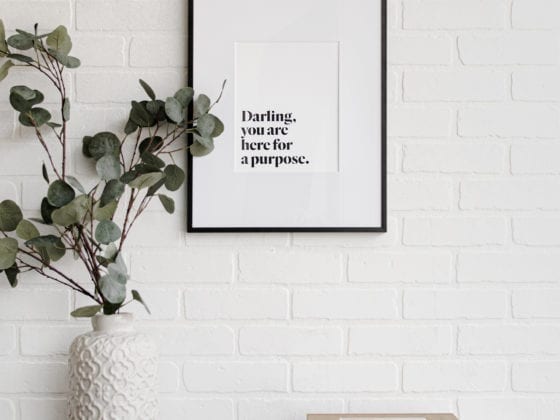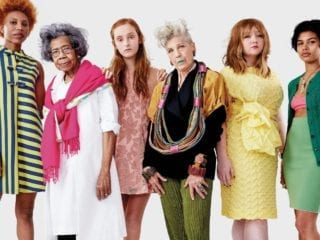I was born in 1976, to a white mother and Black father, in North Platte, a small town in the middle of Nebraska. The oldest of four, we were homeschooled; however, in the 70s and 80s, the Nebraska Board of Education did not recognize it as a valid form of education. I wasn’t allowed to obtain a diploma when I graduated.
Later, when I married and had children, it was important to me that I set a good example for them—an example of what individuals must do when a system fails them. While homeschooling set me up for success, the institution of the Board of Education failed me. At the age of 30, pregnant with my daughter, I obtained my GED and crossed “graduate high school” off of my list.
Learning has always been an obsession of mine. I have always loved reading books, learning from others and applying that knowledge. Since I didn’t have a formal education afforded to me, I have always felt I was lacking and not good enough.
When I co-founded my family dance party business, Rock ‘n Tot, in Cleveland, Ohio and Washington D.C., I referred to myself as an accidental leader.
When we lived overseas and I helped spearhead initiatives (including an English-learning collective in India introduced by First Lady Michelle Obama and several school-based projects at embassy schools in Singapore), I called myself a volunteer.
When I founded and grew an online community to more than 17,000 individuals from all around the world and led them through change leadership and change management in 2017 (from Facebook to a more private social platform), I referred to myself as a happenstance community builder.
Yet, the imposter syndrome knocks on my door all of the time and tells me I don’t know enough.
Yet, the imposter syndrome knocks on my door all of the time and tells me I don’t know enough.
I have innate ideas and traits that align with being a Midwesterner and a perspective from my years abroad which skews toward insisting on empathy and equity for those who are different from me. I have a nuanced understanding of established systems and how they play out in the Midwest, the East Coast, foreign countries and places in between.
My through-line values sit squarely with contribution and collaboration. Equitable economic advancement tops the list of what I fight for. Humility, integrity and love are the mechanisms by which I get invited to the table. Accountability, meaningful dialogue and innovation are incredibly important to me. Add justice and collective healing to the mix, and that’s me in a nutshell.
I’ve testified at City Council and State Legislature inside the Nebraska State Capitol building in support of gun violence prevention and criminal justice reform. I have spoken as a keynote for Union Pacific Railroad’s Lawyer and Legal Risk Conference, Creative Mornings (an international lecture series) and overseas in The Hague for an audience of more than 250 folks in the global mobility/expat industry.
I’ve had executive leadership experience with oversight of multi-million dollar land and property acquisition and development projects. When we moved back home to Nebraska, I worked on affordable housing in the nonprofit world and, currently, I am designing a housing stability program for pandemic crisis response with a local homelessness prevention organization.
Yet, the imposter syndrome shows up and sits next to me on the daily.
For many years, I’ve been asked to run for something. Having young children, launching my real estate business or being entrenched in volunteer work has kept me from saying yes in the past. However, recently after a young Black man was murdered in Omaha by a white bar owner, I watched residents of my city show up for each other all while facing COVID-19, racial injustice, unemployment and the growing housing crisis.
It reminded me that we need more of that—more civic engagement and more care for our neighbors. I knew if I wanted more residents to do their part with civic engagement, I would need to do my part as well.
I knew if I wanted more residents to do their part with civic engagement, I would need to do my part as well.
Towns and cities are the strongest when we have residents who are civically engaged. Civically engaged residents deserve true opportunities for involvement and leaders who listen. We need city government leadership who look like the people they are serving. We need leadership that understands community-building and change leadership.
So I decided to run for City Council. My first step after deciding to run was to have several weeks of speaking to different folks who are politically connected in my city, as well as talking with people who could share their thoughts about my viability as a candidate. Next came setting things up, similar to a business— a website, social media accounts, headshots, and currently, a campaign team.
My City Council consists of seven districts and is a non-partisan government body, meaning people don’t hold elected positions as Democrats, Republicans or Independents. Our city is a “strong mayor” government, which means the mayor acts as the CEO and has the right to veto over City Council. City Council is the policy arm of local government, similar to what a Legislature (the role of Senators) is to other states.
I believe our city governments need to be rooted in equity. They must work to address our implicit biases as they relate to decisions we make, policies we enact and the way that we listen to our citizens. Leadership needs to be accessible, welcoming and engaged.
Leadership needs to be accessible, welcoming and engaged.
I bring all of that to the table. When I sit back squarely on my haunches and stay grounded, I am reminded I am the right candidate to help provide economic advantages for more people, lead in innovative development and housing and collaborate together for an Omaha that provides “The Good Life” for everyone (like the Nebraska state sign says).
I am two months into a year-long campaign and every day brings a host of emotions about running for public office. Some days, I tell myself it’s silly to be nervous about a small city race. Other days, I acknowledge that simply the act of deciding to run is brave.
I may not be able to control the outcome of the elections in 2021 or completely quell my nerves during this campaign, but I can decide to tell imposter syndrome to take a seat.
Do you know anyone who has or is running for local office? Why is being civically engaged important?
Image via Abiola Kosoko












2 comments
Naomi, thank you for writing this and telling your story. I know that many people, including myself, will relate to your experience with imposter syndrome and be inspired to challenge it. The courage to lead from the margins is exactly what we need to transform our culture and build communities where everyone feels that they belong.
Exactly what you said Khenda! “Be inspired to challenge it.” I love that! Thank you for YOUR work to increase civic engagement as well!